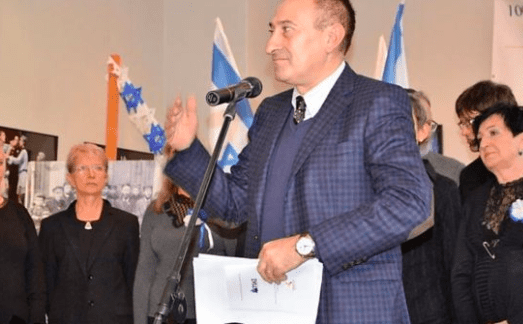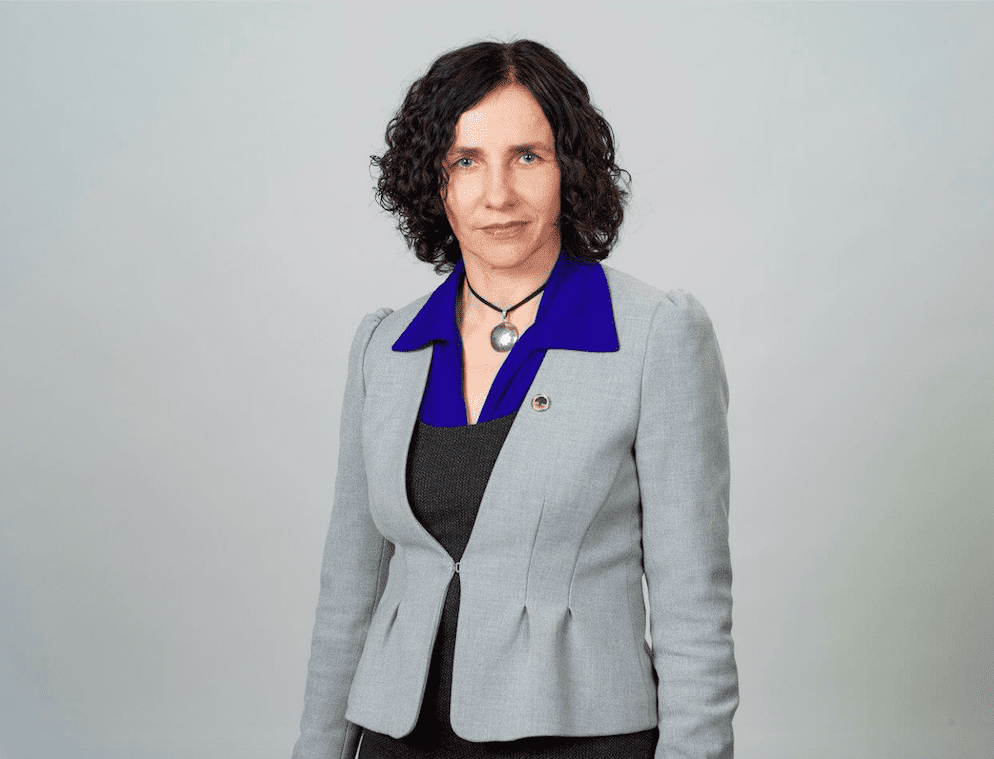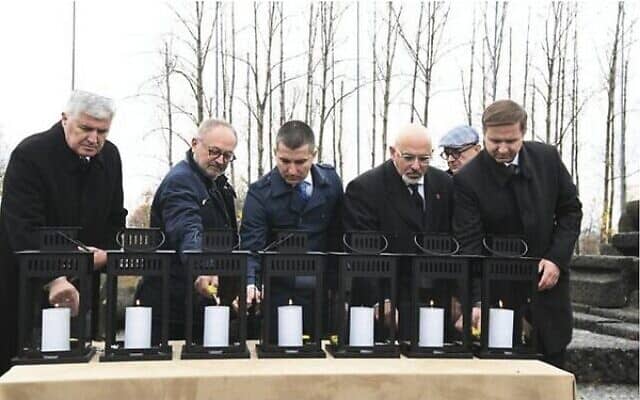Over 100 members of parliament, government officials, ambassadors and European Jewish leaders, gathered in Prague and in the Theresienstadt camp on the eve of International Holocaust Remembrance Day to discuss ways of dealing with fake news and conspiracy theories against Jews in the media, social networks and the rising Anti-Semitism in Universities across the continent.
The Theresienstadt concentration camp was “marketed” by the Nazis as a “Jewish settlement” and an “enlightened” ghetto, but the historical facts prove that in complete contrast to ‘Fake News’ About 120,000 of the 160,000 Jews who were interned there perished in the Holocaust, including about 14,000 children. Some were sent to the gas chambers in Auschwitz, many died of starvation.
According to EJA Chairman Rabbi Menachem Margolin:” Even today, fake news poses a tangible danger to the well-being of Jews throughout Europe, a tool of hatred that is unfortunately strengthened by social networks and mixes conspiracy theories against Jews. The dozens of European leaders who responded to our call to come to Terezin pledged to fight against fake news that encourages anti-Semitism and implement educational programs to eradicate it.”
During the conference and the tour, the European elected officials heard the personal testimony of Gideon Lev, a Holocaust survivor from the Theresienstadt camp, who in recent years has become a “TikTok star” who fights against anti-Semitism: When the Nazis took over the Czech Republic, it was the end for Jews in the country. Jews couldn’t stay outside at night, couldn’t own radios and soon enough we were all moved to Terezin camp which was called a “Resettlement camp”. But it was far from it. they put us in very crowded barracks, there was no space, wives and children couldn’t see their husbands, unless from windows marching in silence. “Arbeit Macht Frei” Is one of the most cynical Nazi atrocities: you are free when you are dead. The fight against antisemitism and combatting hate against Jews and any other minority is something we can and should all do”.
Later in the conference, a series of members of parliament and Jewish leaders from around the continent discussed the influence of social networks as a catalyst for the adoption of anti-Semitic theories that pose a direct threat to the personal security of European Jews.
Member of the French Parliament and spokeswoman of Renaissance Party (President Macron’s Party), Prisca Thevenot said: “Truth is no longer based on scientific facts but on viral and social medias. Things are going faster. We must fight against false items that are appearing quickly on our phone. Macron was presented himself as a puppet of the Jewish people because he is a former banker and has money. Fake news are using the same tropes against the Jews, time and time again. We must fight against every fake news. If we don’t fight them, they spread and spread very quickly.”
MP DAvid Stogmuller from Austria added regarding social media: “We have to understand that social media works extremely fast. It is not enough to make laws to keep up with technological challenges, we must be quick to ban illegal social media hate speech.
MP Alexandre Poço from Portugal said emphasized the importance of education: “Although our problems may not be as large as other countries, we still must invest in education. A proactive attitude continues to be necessary. We have strong ties with Jewish communities. We continue to promote Jewish life, although we are a Catholic country. Our country is aware and will not stop working.
Joel Mergui, President of Consistoire de Paris, France stressed to the elected officials and decision makers in the audience: “I have been in charge for twenty years of the biggest Jewish community in Europe. The new Anti-Semitism burst into the open in the early 2000s and resulted in anti-Semitic murders that tainted France and Europe’s recent history. In spite of this tragedy, I have decided to keep going and encouraged my community members to keep living in Europe as long as we have people and decision-makers on our side who fight against anti-Semitism and radical Islamism. It is from your words, from your acts that we will have the certainty of having a future in Europe.”
Sigmount Königsberg, Antisemitism Commissioner Jewish Community of Berlin warned:
“If we allow the enemies of democracies to shout, then we risk the end of democracy. Antisemites must be made to feel that they have no chance and that they will be made to pay the consequences.
The director of the British organization, ‘Labour Against Antisemitism’, Alex Hearn spoke to the convention regarding how fake news about Jews are a pattern as old as antisemitism itself. Hearn emphasized that antisemitism goes beyond political allegiances and is used by people to gain power or feel more powerful. He also spoke about the contemporary, all-encompassing antisemitic conspiracy theory and the role of social media
The conference participants were shocked by the testimonies of Jewish students from the Czech Republic, Germany, Italy and Spain who reported about great ignorance among their fellow students regarding Jewish matters (many of them have never met a Jew before) and some even said that they have to deal with anti-Semitic and anti-Israeli hate speech in universities across the continent and the unresponsiveness of the heads of the universities to come out against this phenomena.
Rabbi Margolin awarded the prestigious ‘King David Award’ to Amanda Rajkumar, Executive Board Member for Global Human Resources, People and Culture of ADIDAS for the company’s decision to sever all commercial ties with singer Kanye West following his anti-Semitic statements. Upon receiving the award, Rajkumar stated that: “We have responsibility to influence and take action. The hate speech of our former partner (Kanye West) was unacceptable and although we are not always right, this time we made the right decision. We will continue supporting Jewish communities and stand for love and against all forms of hatred, racism, and discrimination.
Anna Azari, Ambassador of Israel to the Czech Republic addressed the conference’s participants and said: “The Czech Republic is the friendliest state to Jews and the State of Israel in Europe. It was the first who helped the state in its war of independence by providing arms and today it is, a leader in helping the Ukrainians and absorbing half a million of refugees.”














